Recent Publications
Anne Kwaschik
Zwischen Wissenschaft und Utopie. Zur Plausibilisierung von Gesellschaftswissen im frühen 19. Jahrhundert
in: Thomas Kirsch / Christina Wald (Hg.), Vorläufige Gewissheiten. Plausibilität als soziokulturelle Praxis, transcript, Bielefeld 2024, pp. 97-114.
You can find the Link here.
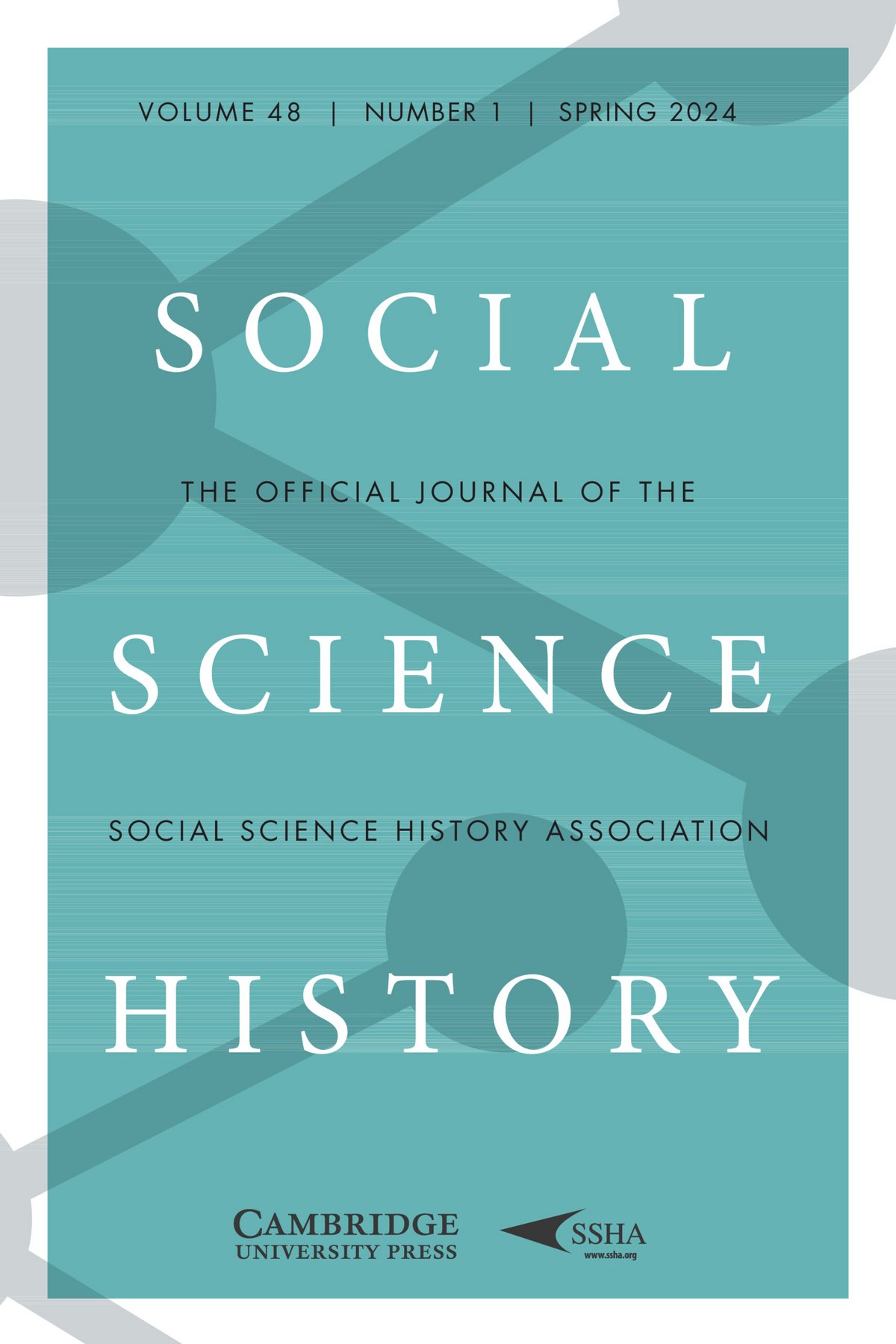
Anne Kwaschik
Reconstructing Colonial Sociology
in: Social Science History (2023), pp. 146-150.
You can find the link here.
Anne Kwaschik
Auf der Suche nach einer Wissenschaft von der Kolonisierung: Netzwerke kolonialer Wissensproduktion und disziplinäre Grenzziehungen im imperialen Zeitalter in Belgien
in: Geschichte in Wissenschaft und Unterricht (2023), pp. 501-516.
You can find the link here.
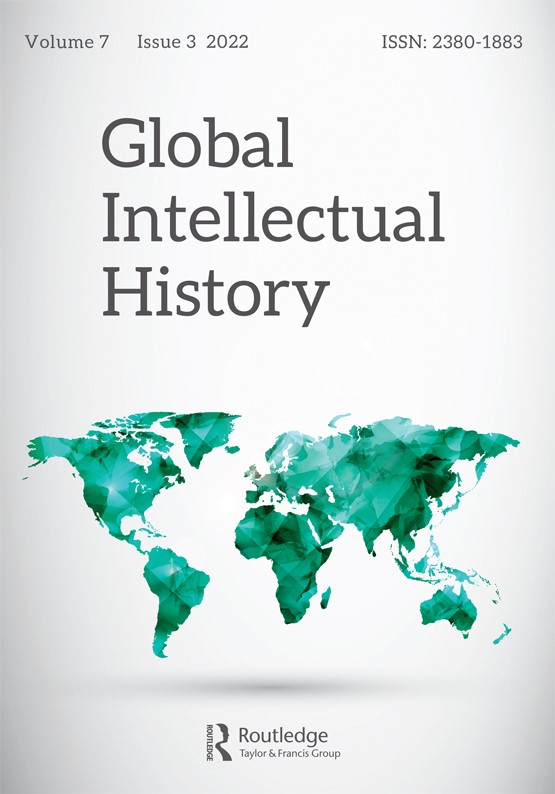
Claudia Roesch
Owen and the Engineers: Cross-Fertilization between Engineering and Early Socialism in the Owenite Tradition.
in: Global Intellectual History (2023), S. 1-16.
You can find the link to the article here.
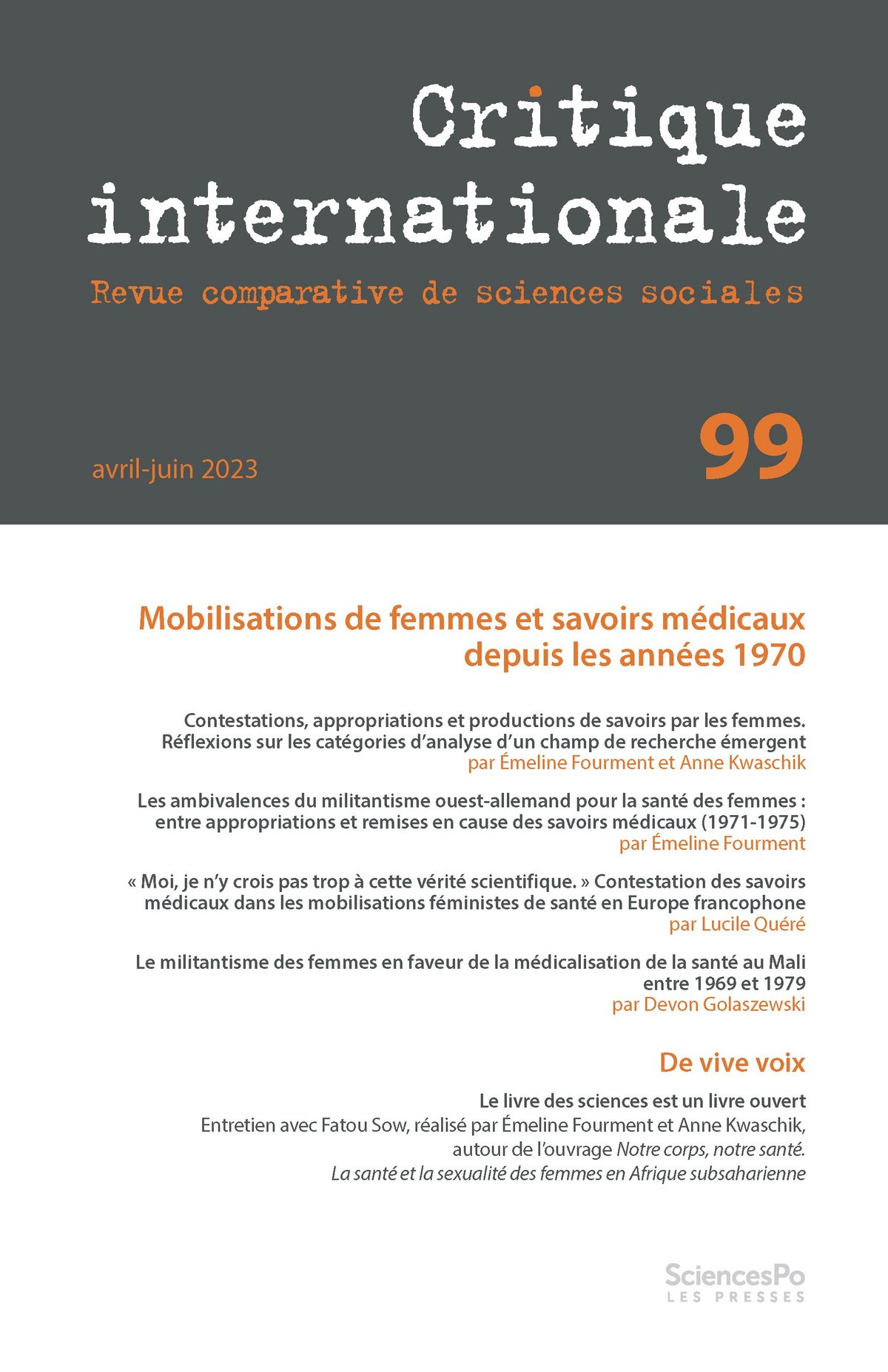
Emeline Fourment and Anne Kwaschik (ed.)
Mobilisations de femmes et savoirs médicaux depuis les années 1970
You can find the link to the journal here.
Included:
Emeline Fourment and Anne Kwaschik
Emeline Fourment and Anne Kwaschik
Le livre des sciences est un livre ouvert Fatou Sow
Emeline Fourment
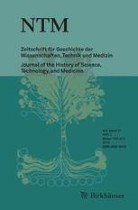
Anne Kwaschik
"We Witches." Knowledge Wars, Experience and Spirituality in the Women's Movement During the 1970s
in: NTM (2023) 3.
You can find the link here.
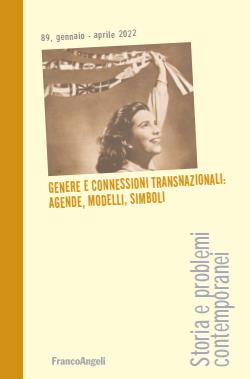
Anne Kwaschik
Constructing Difference: Feminist Witch Discourses in the 1970s
in: Storia e problemi contemporanei 89 (2022), pp. 85-105.
You can find the link here.
Archive
2022
Tommy Stöckel
Wissenschaftsorganisatoren in den Sozialwissenschaften 1890-1940
Wiesbaden 2022.
The link can be found here.
Marie Muschalek and Sven Reichardt
Ein Versuch, Dirk Moses vom Kopf auf die Füße zu stellen: Die NS-Geschichtsschreibung und globalgeschichtliche Ansätze in der Genozidforschung.
in: Beiträge zur Geschichte des Nationalsozialismus 37 (2022), pp. 130-153.
Marie Muschalek and Isabelle Deflers
Verschränkte Ungleichheiten in historischer Perspektive.
in: Freiburger Zeitschrift für Geschlechterstudien 28/ 1-2 (2022), pp.1-12.
The link can be found here.
Claudia Roesch
A Contested Pill. Transnational Controversies over Medical Abortion in Germany, France, and the United States.
in: Journal of Contemporary History (2022 forthcoming)
The link can be found here.
Anne Kwaschik
"Scientific Colonialism": Zum konstruktiven Zusammenhang von Wissen und "colonial governance".
in: Ino Augsberg / Gunnar Folke Schuppert / Peter Weingart (Hg.): Herrschaft und Wissen. Nomos, Baden Baden 2022, pp. 115-141.
Andrea Westermann
Against the Aestheticization of Technofossils: Considering Migrant Labor and Petrochemical Feedstocks in the Future History of Plastic
in: Rosol, Christoph and Giulia Rispoli (eds), Anthropogenic Markers: Stratigraphy and Context. Berlin 2022.
(Bild: Abfüllen und Einatmen von PVC-Pulver bei den Chemischen Werken Hüls in Marl. Aus: Walter Mertzig und Erich Büttgenbach 1956 (erste Aufl.): kunststoff aus gas, Düsseldorf 1956, 112.)
The link can be found here.
2021
Martin Herrnstadt & Léa Renard
L’Enquête, entre science de l’Etat et thérapie sociale:
Genèse et transformations d’une catégorie de la recherche empirique en Allemagne (1880s-1930s)
in: Revue d‘histoire des sciences humaines 37 (2020), special Issue „Nommer les sciences/nommer les savoirs“ [open access] published April 1st 2021: https://doi.org/10.4000/rhsh.5059
2020
Anne Kwaschik
Flucht oder konkrete Utopie?
in: Max Stadler / Nils Güttler / Niki Rhyner et al. (Hg.): Gegen|Wissen (cache Bd.1), Intercom Verlag, Zürich 2020, pp. 57f.
Link to the article: https://cache.ch/blog/fluchtoderkonkreteutopie
Anne Kwaschik
Die Verwissenschaftlichung des Kolonialen als kultureller Code und internationale Praxis um 1900
in: Historische Anthropologie 28/3 (2020), pp. 399-423.
Link to the latest issue: https://www.vr-elibrary.de/toc/hian/28/3
Martin Herrnstadt
Administrating the Empire of the Self:
Joseph-Marie de Gérando (1772-1842) and the Post-Revolutionary Science of Man in France around 1800
in: Francia, Forschungen zur westeuropäischen Geschichte 47 (2020), pp. 133-159.
Link to the journal: https://www.dhi-paris.fr/fileadmin/user_upload/DHI_Paris/Inhaltverzeichnis_Francia_47.pdf
Martin Herrnstadt & Laurens Schlicht
Kontingenz als Ordnung.
Die Idéologie als Machtstrategie der Kontrolle und Organisierung von Menschen, 1795–1830
in: Bayertz, Kurt-/ Kompa/ Strobach (Hgg.): Das Projekt einer ‚Idéologie’. Destutt de Tracys und seine Ideenlehre. Hamburg 2020: Felix Meiner, pp. 189-210.
Link to the anthology: https://meiner.de/das-projekt-einer-ideologie.html?
Franz Leander Fillafer
Aufklärung habsburgisch. Staatsbildung, Wissenskultur und Geschichtspolitik in Zentraleuropa 1750-1850.
Wallstein Verlag: Göttingen 2020.
The historical image of the Enlightenment as a project of secular-democratic modernity was largely created by the French Revolution - but it buried its historical multifariousness. Franz L. Fillafer rediscovers the Enlightenment in the Habsburg monarchy: on the basis of its shapers and the knowledge culture and society they built, he demonstrates for the first time that the Habsburg Empire during the "Restoration" was not a bulwark against Enlightenment and revolution. Instead, Fillafer uncovers variants of the Enlightenment that did not culminate in revolution, but flourished precisely in the context of resistance to revolution. They fed on their own sources and shaped the Habsburg state in the long term.
By detaching the Enlightenment from the fixation on "radical ideas" from Western Europe and on their alleged completion through revolution and liberalism, Fillafer presents an analytical model for the European Enlightenment, but also for its transformation in the 19th century.
Further information can be found on the publisher's page
Martin Herrnstadt / Léa Renard / Paul Franke
Politik der Kurve:
Wissenshistorische Perspektiven auf Produktion und Kommunikation statistischer Evidenz
in: „Gesellschaft im Krisenmodus: Geistes- und sozialwissenschaftliche Perspektiven auf die Pandemie“, Online-Reihe des Centre Marc Bloch am 09. Juli 2020
Marie Muschalek
Violence as Usual: Policing and the Colonial State in German South West Africa
University of Namibia Press, Windhoek, 2020.
Sina Steglich
Zeitort Archiv.
Etablierung und Vermittlung geschichtlicher Zeitlichkeit im 19. Jahrhundert.
Frankfurt am Main 2020: Campus.
Time, historicity and modernity are inextricably linked. Yet the question of how to understand time in modernity often remains abstract. This study concretizes the web of relationships between time and historicity using the example of state archives in Germany, France, and Great Britain in the "long" 19th century. With the opening up to research and the public, but also with theoretical justification and scientification, archives underwent a decisive transformation at that time. From this perspective, work in and with archives can be understood as a contribution to the mediation of time as history, which is still of fundamental importance today.
Further information can be found on the publisher's page
2019
Anne Kwaschik / Christina Stange-Fayos
Zwischen Traditionsstiftung und radikalem Neuanfang.
Zur Konstruktion eines "feministischen Erbes" in den Frauenbewegungen
in: Catherine Mazellier-Lajarrige / Ina Ulrike Paul / Christina Stange-Fayos (Hg.), Geschichte ordnen - L'Histoire mise en ordre. Interdisziplinäre Fallstudien zum Begriff "Generation" - Études de cas interdisciplinaires sur la notion de "génération", (Zivilisationen und Geschichte, 59), Berlin u.a.: Peter Lang 2019, pp.111-128.
Further information can be found on the publisher's page
Moritz von Brescius
German Science in the Age of Empire:
Enterprise, Opportunity and the Schlagintweit Brothers.
Cambridge 2019: Cambridge University Press.
The expeditions of the three Schlagintweit brothers to India and High Asia during the 1850s in the service of the Prussian king and the British East India Company are among the most important and at the same time most controversial exploration projects of the mid-19th century. Their expedition was exceptional in several respects. It resulted in a unique collection of written as well as pictorial records and artifacts from South and Central Asia - a total of over 40,000 objects of natural and cultural history from the areas they traveled through. The brothers used the collections to establish a now-forgotten "Indian Museum" at Monbijou Palace in Berlin, which continued for several years after their return in 1857. The book also examines the social and scientific 'inner life' of the extremely heterogeneous expedition group of the Schlagintweits and works out the eminent importance of Indian partners, guides and translators for the realization of the mission. Through the case study of the Schlagintweit brothers and the complex legacy of their scientific expedition, the work lastly analyzes the conflictual formation of a new disciplinary order after the Humboldtian era, and provides a new understanding of scientific authority and authenticity in the reporting of non-European cultures and geographies. Extensively researched in 57 archives and on three continents, the book is based on sources in eight languages: including those in English, French, German, Dutch, Russian, Tibetan, Persian, and Hindi.
Further information can be found on the publisher's page
2018
Anne Kwaschik
Hinter dem „seidenen Vorhang“.
Entnazifizierung und Umerziehung in der französischen Besatzungszone (1945-1949)
in: Frank Engehausen/Maria Muschalek/Wolfgang Zimmermann (Hg.), Deutsch-Französische Besatzungsbeziehungen im 20. Jahrhundert (Werkhefte der staatlichen Archivverwaltung Baden-Württemberg, Serie A , 27), Stuttgart: Kohlhammer 2018, pp. 209-231.
More information can be found on the page of the National Archive
Anne Kwaschik
Der Griff nach dem Weltwissen.
Zur Genealogie von Area Studies im 19. und 20. Jahrhundert
What place does knowledge from Africa and Asia have in European science? How did it become science and which historical configurations were decisive for this? Anne Kwaschik answers these questions with a genealogy of area studies, understood as a concept, and traces it in the modernizing configurations of colonialism and the Cold War in its function as a political instrument, thought pattern, rhetorical tool, and organizational structure. The history of knowledge presented here is an unfinished history of constellations and moments of crystallization that makes hybrid patterns of thought and institutional practices in symptomatic situations its object of inquiry and shows how, in them, scientificity becomes a discursive dispositive.
Specifically, the initial question leads back to the constitution of ethnogeographical thought patterns and the processes of their disciplining. The analysis begins with the construction of the sociological foundations of the area studies concept in the imperial age in the metropolises. The author illuminates how the concept continued and developed social science and science policy dimensions in the United States and how these in turn shaped the establishment of Area Studies in Western Europe after 1945. In this understanding of area studies as an "ordering system of knowledge," she constructs for the 19th century a European context of communication in which colonialism was scientized; for the 20th century, narratives of Americanization or America's cooperative hegemony in the construction of European research landscapes are negotiated.
Looking at the 19th and 20th centuries, the author shows that the process of a scientization of the colonial as a mode of self-understanding of industrial capitalist societies must be placed alongside the scientization of the social, whose fundamental global-historical extension she proposes.
Kwaschik, Anne, Der Griff nach dem Weltwissen. Zur Genealogie von Area Studies im 19. und 20. Jahrhundert (Kritische Studien für Geschichtswissenschaft, 229), Göttingen: Vandenhoeck & Ruprecht 2018. ISBN: 978-3-525-35596-1 (400 Seiten, mit 6 Abb., gebunden, Habilitationsschrift)
